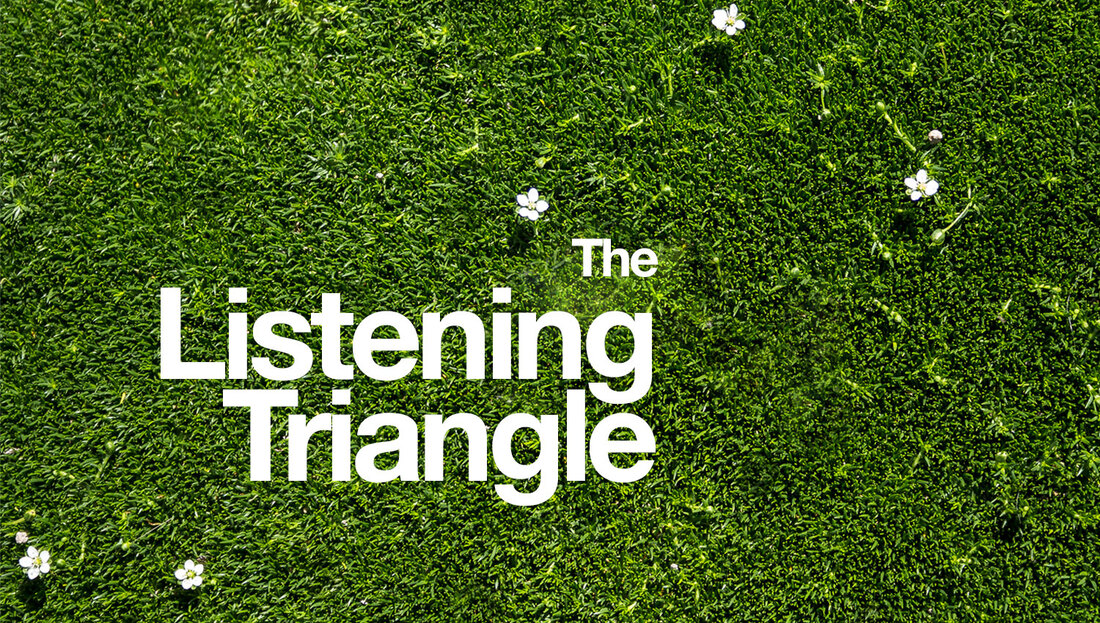|
Knowing where to focus our attention most effectively.  A few months ago, I wrote an article called, 3|3|3|--The Three of Threes of Coaching where I described three important triangles coaches need to be aware of. Today, I have one more triangle to add to this list--The Listening Triangle. In coaching, we talk a lot about the distinction between the What and the Who. To describe it quickly, the What is the story, the situation the client brings to the coaching conversation. The What usually stays on the surface of the client’s system. The Who is what is underneath. This is the identity of the client—where their values, motivations, and their internal energy come from. Since coaching is designed to be a transformational process, the best coaching happens when we can tap into the Who of the client. This is because, when we access the Who, we are giving the client the opportunity to empower themselves and make choices that are in integrity with Who they truly are. When we access the Who, we are supporting the client to create steps that will open the possibility for them to make sustainable and lasting changes. However, it seems that we are all fixers in recovery. We all have that tendency to look at a problem and quickly jump into trying to solve it or find an answer for it. For the longest time, our culture has rewarded us to have the answer and we became very proficient in gathering our toys, collecting information and even in pretending we know better. Our egos can also be very active in these moments. When we find the answer or know the solution, we pat ourselves on the back with that sense of reward and self-worth. What we tend to forget is that as coaches, regardless of how much experience or how many PhDs we may have hanging on our wall, the moment we jump into solving the problem, we are actually disempowering the client. When we give the answer, we are inadvertently saying: I know, and you don’t. I am better than you. I have the resources. You don’t. You are less than. When we focus our attention on the What, we are, in fact, dismissing the most important element in the coaching process--the client. This is when the Listening Triangle comes in handy. The coaching process is like a triangle where in one corner, we have the client (Who); in another, the coach; and in the third corner, we have the issue (What). As coaches, our job is to have our presence and listening ear focus on the client (Who). One of the fundamental principles of coaching is the trust and belief in the client’s resourcefulness, and their ability to handle their situation. As coaches, we let the client be concerned with the issue (What). Our job is to listen beyond the story, beyond the issue and pay attention to the client. The moment we turn our attention to the problem (What), we end up forgetting the client (Who) and transformation becomes virtually impossible. The process become superficial and whatever steps the client (Who) creates, most likely will be temporary simply because they are not going to be directly connected with the client’s intrinsic motivations. Clients come to the coaching conversation with their own way of seeing the issue at hand. They are usually focused on the problem and not able to see much beyond their thought process. The impact of coaching is when the coach puts their attention on the client’s own being (Who) and bring them forward through questions, observations, stories, and reflections. This process gives the client the opportunity to widen their perspective, giving them a deeper view of their situation and more solid resources for them to make sound decisions around their issue (What). In a way, this is supporting the What by listening to the Who. Taking care of the What, through the Who. When we pay attention to the Who of the client, we are empowering them to better address their What in a transformative and lasting manner.
6 Comments
6/29/2021 11:31:11 am
Elias: This post is so PACKED with important nuggets to empower
Reply
Elias Scultori
7/1/2021 05:44:35 pm
Excellent, Brad... When we think we are helping, we are actually doing the opposite. A great reminder.
Reply
Elias Scultori
5/4/2022 09:50:48 am
I am so glad that this was insightful to you, Pat. Looking forward to your hearing what you think of the other posts...
Reply
8/30/2022 05:40:30 pm
Thanks for this insightful read, Elias! I love how you explain that coaching the Who supports the client on a deeper level so they're empowered to tap into resources and growth that's much more sustainable. It's real progress that takes clients to another level of personal development. Very thought provoking and helpful for this new coach. I just signed up for your newsletter - keep 'em coming!
Reply
Elias Scultori
8/30/2022 08:03:59 pm
Awesome insight, Amy. The word here is "sustainable". Coaching as a transformative process. Glad you signed up for the newsletter. More to come...
Reply
Your comment will be posted after it is approved.
Leave a Reply. |
SUBSCRIBEOne of the most important points of being an effective coach is to stay current to what is happening in the coaching world and up-to-date with your skills. Don't miss the next article for ForCoaches. Subscribe below and be notified of my next article.
AuthorAs a mentor coach, I am always giving feedback to my students and mentees helping them develop their coaching skills and prepare for their certification with the ICF. ForCoaches is a place where I can publicly share some of my insights and experiences. What does it mean to be a truly effective coach? Archives
January 2024
Categories |


 RSS Feed
RSS Feed